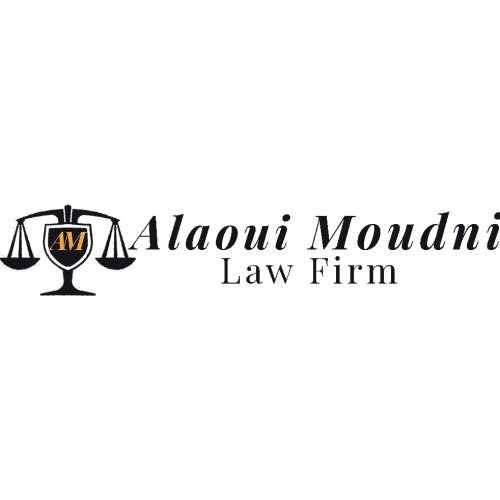Best Restructuring & Insolvency Lawyers in Morocco
Share your needs with us, get contacted by law firms.
Free. Takes 2 min.
Or refine your search by selecting a city:
List of the best lawyers in Morocco
About Restructuring & Insolvency Law in Morocco
Restructuring and insolvency law in Morocco addresses situations where individuals or companies are unable to meet their financial obligations. This legal framework offers mechanisms for rescuing businesses in financial distress, maximizing creditors’ recoveries, and providing an orderly process for dissolving insolvent entities. The aim is to preserve viable economic activity, safeguard jobs, and ensure equitable treatment of everyone involved. In recent years, Moroccan law has undergone significant reforms to modernize insolvency rules and encourage business recovery, making the process more transparent and aligned with international best practices.
Why You May Need a Lawyer
Legal assistance in restructuring and insolvency matters can be critical due to the complex and specialized nature of these proceedings. You may need a lawyer if you are:
- Facing financial difficulties as a business owner and considering restructuring options
- A creditor seeking to recover debts from an insolvent company or individual
- An investor or stakeholder in a business undergoing insolvency proceedings
- Considering filing for insolvency as an individual
- Concerned about your rights and obligations in the context of restructuring negotiations
- In need of advice about asset protection or debt collection during insolvency
A lawyer can assist with filings, negotiations, mediations, and court appearances, helping you understand your rights, comply with legal requirements, and achieve the best possible outcome given your situation.
Local Laws Overview
Morocco’s legal framework for restructuring and insolvency is primarily set out in Law No. 73-17 amending and supplementing the Commercial Code. Key features include:
- Preventive Proceedings (Procédure de Sauvegarde): Designed for businesses facing difficulties but not yet insolvent, allowing early intervention to restructure debts, reorganize operations, and avoid liquidation.
- Judicial Restructuring (Redressement Judiciaire): Used when a business is already insolvent but may be rescued through judicial control and restructuring plans.
- Judicial Liquidation: Applies when all chances of business recovery are exhausted, and assets are liquidated to pay back creditors.
- Role of the Court: Commercial courts oversee insolvency and restructuring cases, appointing judicial administrators and ensuring fair treatment of all parties.
- Priority of Creditors: Secured creditors generally receive priority, but the law sets out detailed rankings for how different creditor claims are settled.
- Rights of Employees: Employees have specific protections, particularly regarding unpaid wages and job preservation during restructuring.
Recent legal reforms have made Moroccan insolvency proceedings more efficient, offering better chances for the rehabilitation of struggling businesses.
Frequently Asked Questions
What is the difference between preventative and judicial restructuring proceedings?
Preventative proceedings are initiated before a company is declared insolvent to resolve financial difficulties early. Judicial restructuring is used if a company is already insolvent, involving court oversight to attempt business recovery.
Who can file for insolvency in Morocco?
Business owners, creditors, or sometimes the public prosecutor can request the opening of insolvency proceedings. Individuals can also file for insolvency if unable to meet their debts.
How are creditors informed about insolvency proceedings?
Creditors are notified by the court or appointed administrator and must file their claims within specified deadlines to participate in any distributions.
Are there alternatives to liquidation for struggling businesses?
Yes, alternatives include preventative proceedings and judicial reorganization, which aim to restructure debts, reorganize management, and allow businesses to continue operating while addressing their financial issues.
What role does the commercial court play in insolvency?
The commercial court supervises the entire restructuring or insolvency process, appoints administrators, approves plans, and ensures the law is followed.
Can restructuring plans affect existing contracts?
Yes, during judicial restructuring, certain contracts can be renegotiated or terminated with court approval if it helps restore the business's viability.
Are employees’ rights protected during insolvency?
Moroccan law provides employees with preferential claims, especially for unpaid wages, and attempts to preserve jobs during business recovery efforts.
How long does an insolvency process usually take in Morocco?
Timelines vary based on case complexity. Preventive procedures can be resolved in a few months, while judicial restructuring or liquidation may take longer, sometimes over a year.
Can foreign creditors participate in Moroccan insolvency proceedings?
Yes, foreign creditors have the right to submit their claims, provided they comply with Moroccan legal requirements and deadlines.
Is it possible to appeal insolvency decisions?
Parties can generally appeal key decisions made by the court, such as opening proceedings, approval of plans, or asset distributions, according to procedural rules.
Additional Resources
Individuals seeking further information or support may find the following resources beneficial:
- Commercial Courts (Tribunaux de Commerce): These courts handle restructuring and insolvency cases in major Moroccan cities.
- Moroccan Ministry of Justice (Ministère de la Justice): Offers guidance on commercial and insolvency law procedures.
- Office of Bankruptcy and Business Recovery (Bureau de la Faillite et du Redressement Judiciaire): Provides information on ongoing cases and legal processes.
- Chamber of Commerce, Industry, and Services (Chambre de Commerce, d'Industrie et de Services): Offers assistance to local businesses, including advisory services for those facing financial distress.
- Professional Associations of Lawyers: These can connect individuals with legal professionals specialized in restructuring and insolvency matters.
Next Steps
If you need legal assistance in restructuring and insolvency matters in Morocco, consider these steps:
- Assess your situation and gather all relevant financial documents
- Contact a legal professional or specialized law firm with experience in Moroccan insolvency law
- Prepare to discuss your objectives, concerns, and any previous attempts at resolving financial issues
- Attend an initial consultation to understand your options and the potential costs involved
- Follow your lawyer’s guidance regarding legal filings and court appearances
Engaging a qualified legal expert early can make a significant difference in navigating Morocco’s restructuring and insolvency processes successfully and safeguarding your interests.
Lawzana helps you find the best lawyers and law firms in Morocco through a curated and pre-screened list of qualified legal professionals. Our platform offers rankings and detailed profiles of attorneys and law firms, allowing you to compare based on practice areas, including Restructuring & Insolvency, experience, and client feedback.
Each profile includes a description of the firm's areas of practice, client reviews, team members and partners, year of establishment, spoken languages, office locations, contact information, social media presence, and any published articles or resources. Most firms on our platform speak English and are experienced in both local and international legal matters.
Get a quote from top-rated law firms in Morocco — quickly, securely, and without unnecessary hassle.
Disclaimer:
The information provided on this page is for general informational purposes only and does not constitute legal advice. While we strive to ensure the accuracy and relevance of the content, legal information may change over time, and interpretations of the law can vary. You should always consult with a qualified legal professional for advice specific to your situation.
We disclaim all liability for actions taken or not taken based on the content of this page. If you believe any information is incorrect or outdated, please contact us, and we will review and update it where appropriate.
Browse restructuring & insolvency law firms by city in Morocco
Refine your search by selecting a city.

















